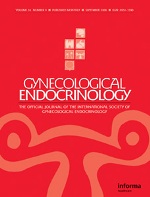Abstract
Polycystic ovary syndrome (PCOS), a relevant cause of infertility, is a heterogeneous, endocrinedisorder affecting up to 10–15% of women in reproductive age. Besides hyperandrogenism,insulin resistance (IR) plays a key role in such syndrome. Insulin-sensitizing drugs, such asMetformin, are effective in treating hyper-insulinemic PCOS patients. Recently, inositols – myo-inositol (MI) and D-chiro-inositol (DCI) – have shown to be an efficient and safe alternative inPCOS management, as both inositol isoforms are able to counteract downstream consequencesof insulin resistance. Yet, whereas DCI contributes in mediating insulin activity mainly on non-ovarian tissues, MI displays specific effects on ovary, chiefly by modulating glucose metabolismand FSH-signaling. Moreover, MI may also improve ovarian functions by modulating steroidmetabolism through non-insulin-dependent pathways. As DCI and MI activity likely involvesdifferent biological mechanisms, both inositol isoforms can be synergistically integratedaccording to a multitargeted design, by combining MI and DCI in a ratio corresponding to theirphysiological plasma relative amount (40:1). New experimental and clinical evidence with MIplus DCI evidenced the suitability of such integrated approach, and provided promising results.Further studies need to investigate thoroughly the molecular mechanism and confirm suchpreliminary data.

